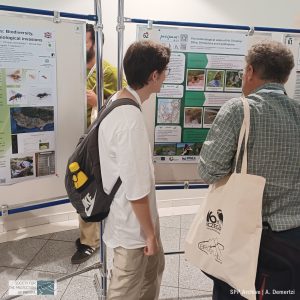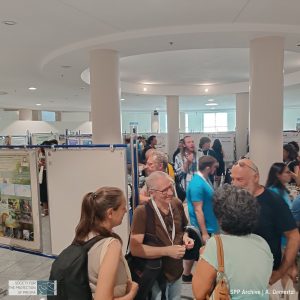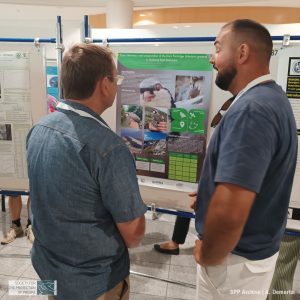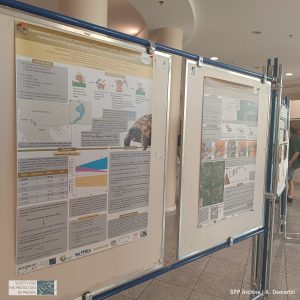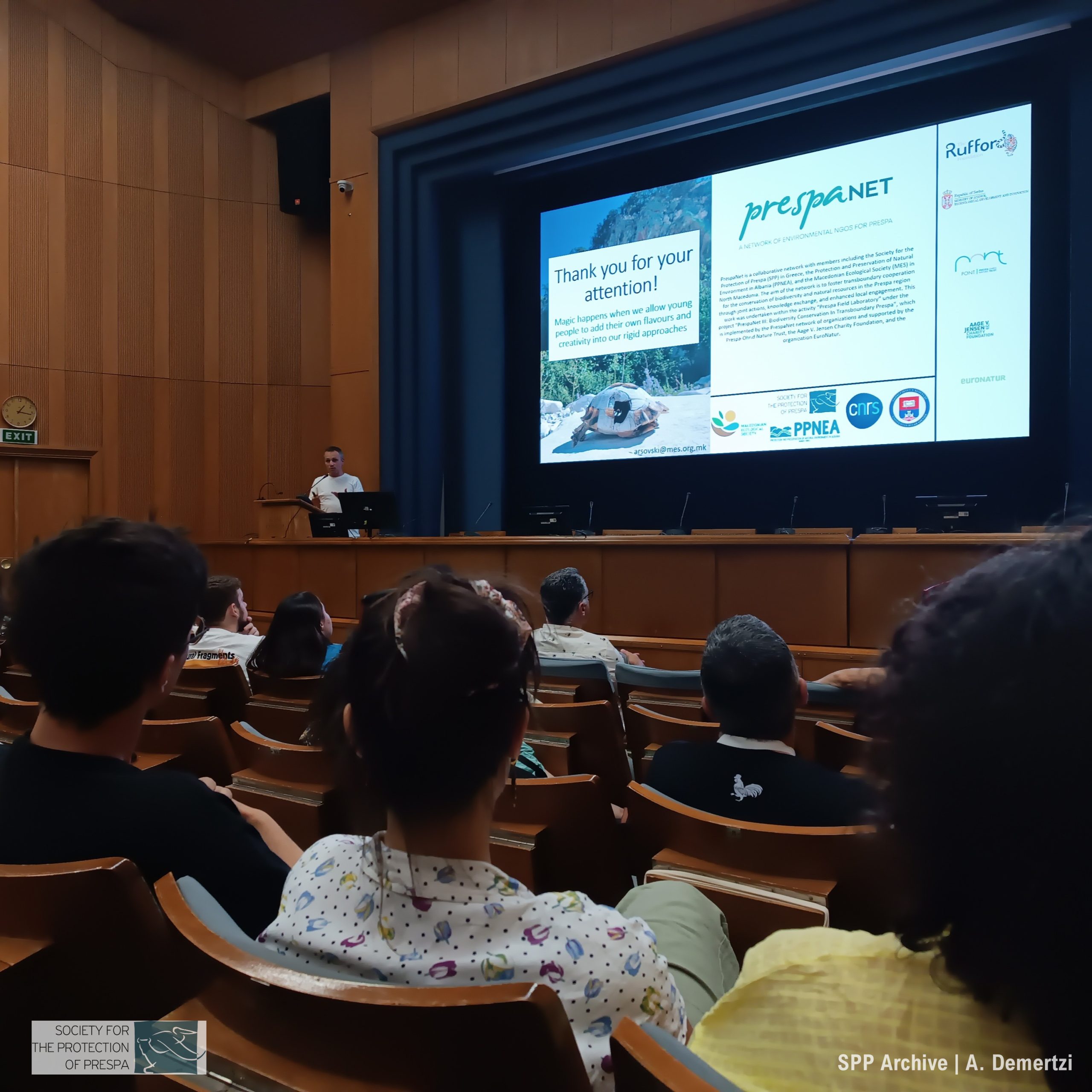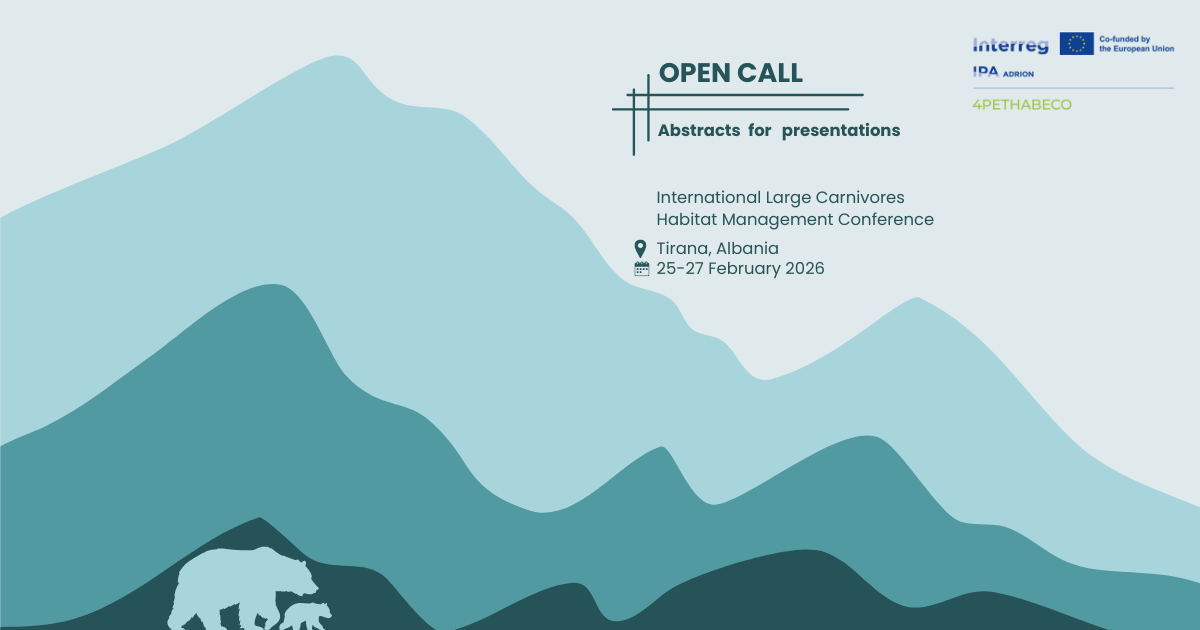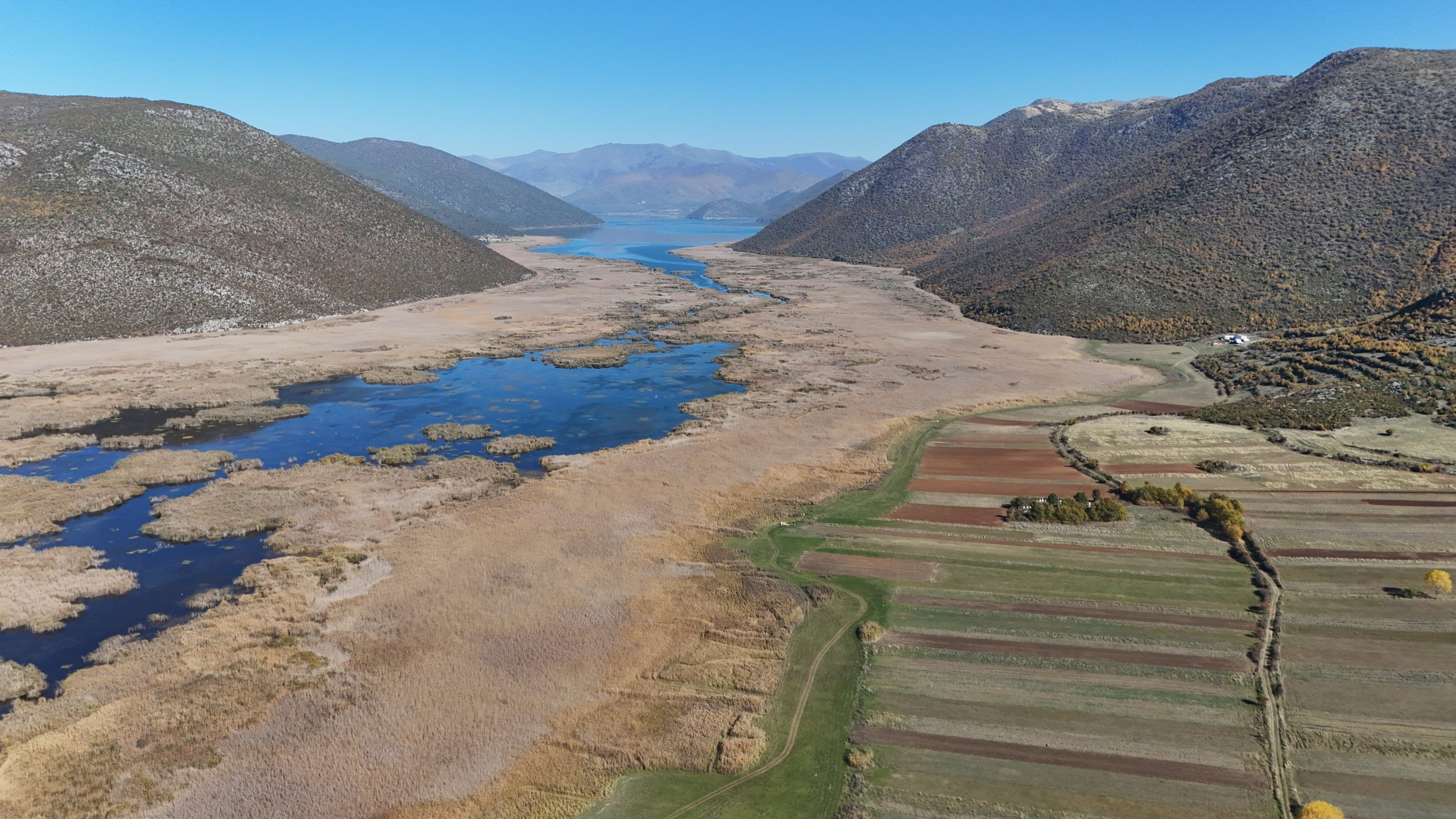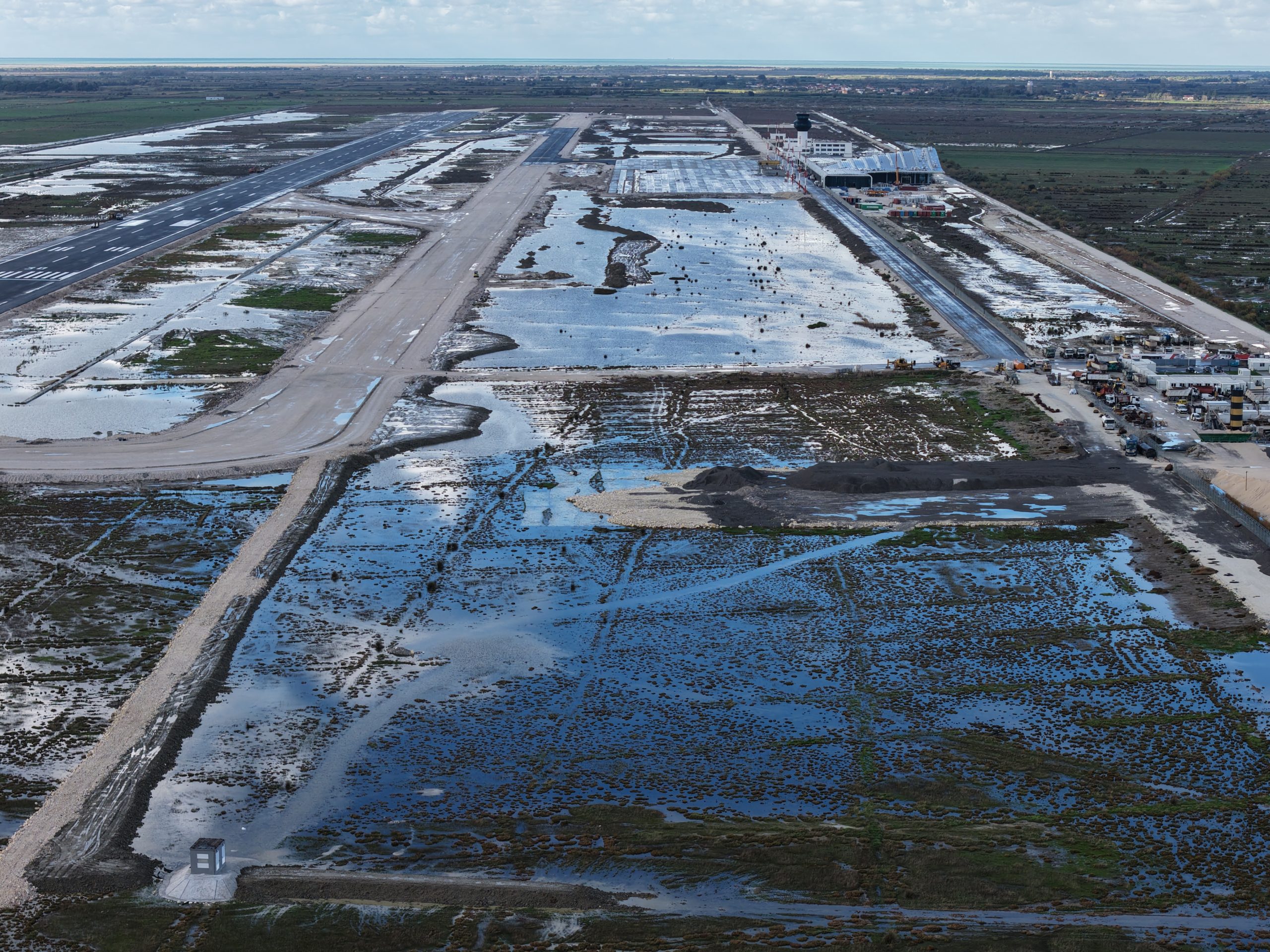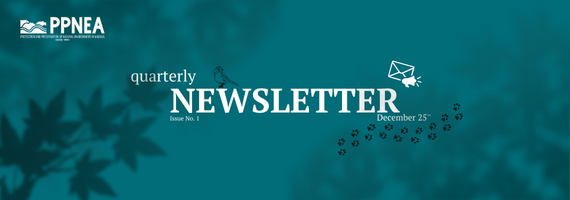The International Congress on the Zoogeography and Ecology of Greece and Adjacent Regions (ICZEGAR), is a long running forum for Mediterranean biodiversity research and PrespaNet was proud to have a strong presence in the 16th congress held in Athens last week (03 – 06 July).
With seven diverse presentations, our team highlighted the ecological uniqueness and conservation challenges of the transboundary Prespa basin – from herpetological research, and surveys on insects, micromammals and birds, to wetland connectivity and documenting the values of Prespa’s mountainous ecosystems. The contributions reflect not just scientific research, but also the power of collaboration across borders, generations, disciplines and sectors.
PrespaNet has invested in supporting young researchers, through internships and volunteer programmes, as well as the organization of targeted field camps and transboundary summer schools, in an effort to transform this remote region into a training ground for emerging conservationists. Our activities under the “Prespa Field Laboratory” are reflected in our contributions to ICZEGAR 2025, where several of our presenters, once participants in related programmes, are now sharing their own research and field experience with the regional scientific community.
Our contributions to the 16th ICZEGAR conference:
1.“From snake island to a hub of research and education: who learned what on Golem Grad Island?” by Dragan Arsovski, Ana Golubović, Xavier Bonnet, Vukašin Bjelica, Ljiljana Tomović 2.“Assessment of an insular population of the priority species Testudo hermanni: Preliminary findings from Agios Achilleios island, Lesser Prespa Lake” by Nikolaos Lioupis, Dragan Arsovski, Taxiarchis Danelis, Maria-Nefeli Marinou, Irene Koutseri 3.“The importance of connectivity of wet meadows in supporting the Macedonian crested newt” by Daniela Jovanovska, Dragan Arsovski, Nikolov Lazar 4.“The entomological value of Mt. Triklario/ Sfika: Orthoptera and Lepidoptera” by Eleftheria Kaltsouni, Irene Koutseri, Aikaterini Kerasia Zimarikopoulou, Nikolaos Lioupis, Elvira Sakkoudi, Nikolaos Filippidis, Konstantina Nasiou, Apostolis Stefanidis, Vasiliki Kati 5.“Basic life history and conservation of the Rock Partridge (Alectoris graeca) in National Park Galichica” by Slave Nakev, Metodija Velevski 6.“Exploring the micromammal fauna of a karstic plateau on Mt. Triklario northwestern Greece” by Nikolaos Lioupis, Irene Koutseri, Kyriaki Bairaktaridou, Annita Logotheti, Foteini Papanousi, Giorgos Catsadorakis 7.“Seasonal monitoring of bats in two selected caves in Galičica National Park, North Macedonia” by Aleksandar Stojanov, Aleksandar Pavlov, Dejan Dimidjijevski, Andrej GonevAcknowledgments are extended to all the research institutions and nature protection agencies that have supported this work over the years:
- Biodiversity Conservation Lab, University of Ioannina, Greece
- Biology Department, University of Patras, Greece
- Molecular Ecology and Conservation Genetics Lab, University of Ioannina, Greece
Learn more about our work as PrespaNet and our project: PrespaNet
The PrespaNet project III, running from 2024 to 2027, is supported by donors such as AVJCF and PONT, with funding from EuroNatur.
Learn more about the above-mentioned work in: 16th ICZEGAR 2025 – Book of abstracts
What is PrespaNet:
PrespaNet is a network of three environmental NGOs — SPP (Greece), MES (North Macedonia), and PPNEA (Albania) — working together since 2013 to enhance nature conservation in the transboundary Prespa area. The network’s activities are guided by five strategic pillars:
- Waterbirds, wetlands, and climate change
- Environmental education and outreach
- Species conservation
- Freshwater Island conservation
- Transboundary collaboration
Through this initiative, PrespaNet aims to empower the next generation of conservation professionals by fostering knowledge exchange, practical skills, and long-term engagement with the region’s natural heritage.
